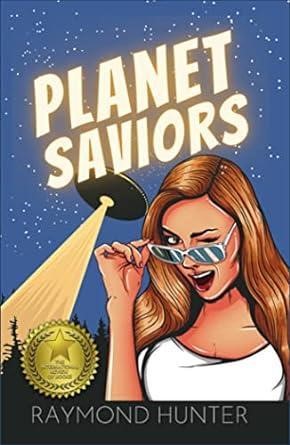Moving into the world of sci-fi writing but unsure where to start? Don’t worry! We’ve got you. Crafting your first sci-fi novel can be both thrilling and challenging. To help you get started, here are essential tips to guide you through the process.
1. Find Your Unique Concept
Every great sci-fi novel begins with a unique idea. Look for inspiration in current technological trends, space exploration, or futuristic scenarios. Think about what excites you in the genre and how you can offer a fresh perspective. Your concept should be intriguing enough to captivate your readers’ imagination.
2. Research and Build Your World
Creating a believable sci-fi world requires research. Study existing technologies, scientific theories, and futuristic concepts to ground your story in reality. Whether you’re exploring advanced robotics or distant planets, having a solid understanding will make your world feel authentic. Build your setting with attention to detail, considering how technology influences daily life and society.
3. Develop Compelling Characters
Your characters should be as captivating as your sci-fi world. Create complex, relatable characters who face challenges and grow throughout the story. Think about how your characters interact with the futuristic technology and how it impacts their goals and relationships. Strong character development will keep readers engaged and invested in your story.
4. Outline Your Plot
Before writing, outline your plot. Identify key events, conflicts, and resolutions. An outline helps you stay organized and ensures that your story flows logically. Include major plot points such as the inciting incident, climax, and resolution. This will provide a clear roadmap and help you maintain focus as you write.
5. Integrate Technology Seamlessly
Futuristic technology should enhance your story, not overshadow it. Ensure that it is integrated smoothly into the plot and characters’ lives. Technology should drive the story forward and influence character decisions. Avoid overloading your narrative with too much technical detail; instead, focus on how the technology impacts the plot and characters.
6. Show, Don’t Tell
Instead of explaining every detail, show technology and world-building elements through action and dialogue. Let readers experience your sci-fi world through your characters’ interactions and experiences. For example, instead of describing a futuristic gadget in detail, demonstrate how it’s used in a key scene.
7. Create Tension and Conflict
A compelling sci-fi novel needs tension and conflict. Develop challenges that drive the plot and keep readers on edge. These conflicts can be internal, such as a character struggling with their beliefs, or external, such as a clash with a powerful antagonist. Ensure that the stakes are high and that your characters are actively working to overcome obstacles.
8. Revise and Edit Thoroughly
Writing is rewriting. Once you complete your draft, take time to revise and edit. Look for plot inconsistencies, character development issues, and pacing problems. Editing is crucial for polishing your manuscript and ensuring that your story is clear and engaging. Consider seeking feedback from beta readers or joining a writing group for additional perspectives.
9. Understand the Market
Familiarize yourself with current trends in the sci-fi genre. Read widely within the genre to understand what’s popular and what’s been done before. This knowledge will help you position your novel effectively and identify how your story can stand out. Knowing the market will also assist you in targeting the right audience.
10. Stay Persistent and Passionate
Writing a novel is a long journey. Stay persistent and keep your passion alive, even when faced with challenges. Writing a sci-fi novel requires dedication, creativity, and hard work. Embrace the process, and don’t be discouraged by setbacks. Your commitment will be rewarded when you see your story come to life.

Conclusion
Getting on your first sci-fi novel is an exciting adventure. By focusing on unique ideas, believable worlds, and engaging characters, you’ll build a strong foundation for your story. Stay persistent and let your creativity shine. With these tips, you’re well on your way to crafting a sci-fi novel that captivates and thrills readers. Keep refining your skills and enjoy the journey—your next great story awaits!
Need inspiration? Start your journey into science fiction with “Planet Saviors” authored by Raymond Hunter, currently accessible for acquisition! Keep in mind, the allure of an unforgettable sci-fi expedition resides in the details that animate your imagined planets. Acquire your copy today and refine your skills in effortlessly crafting diverse planets.




